Towards a better understanding of the interface between digital tech and the physical environment
The Digital Environment System Coalition, ICT4D.at and TaC-Together
Session 332
This interactive session follows commitments made at WSIS 2022 and 2023 to provide updates on recent developments in research and practice at the interface between digital tech and environmental issues. It is also intended to provide a summary of DESC’s proposed contributions to the ITU’s Partner2Connect digital coalition, which focuses on a basic toolkit through that companies and organisations can use and thereby change the impact that their contributions to P2C will have on the physical environment.
The current global emphasis within this broad field by companies, international agencies and civil society organisations is primarily on ways through which digital tech can ameliorate “climate change”, mainly by reducing carbon emissions and e-waste. It is thus remarkable to note that the word “climate” did not feature in the Tunis Agenda for the Information Society (2005). Likewise, the word “nature” (in the sense of the physical world) does not feature at all in the Agenda, and the word “environment”(again in the sense of the physical world) only features twice (23.f, 90.p), with “environmental” featuring once (90.g). Interestingly, the word ”environment” in the sense of policy environment, enabling environment or competitive environment, all mainly focusing on economic aspects of digital technologies, features some 17 times. Action Line C7. does nevertheless focus on e-environment (with WMO as facilitator), and the ITU currently lists six previous events on this at WSIS held between 2016 and 2018. There have subsequently been other environmental sessions, but given the very great importance of the interface between digital and the physical environment (beyond just climate), this seems to be an under-represented theme within WSIS. Our session hopes to bring the physical environment central stage.
The session itself will be in three elements:
- An overview of developments since the original WSIS gatherings in 2003 and 2005 at the interface between digital and the physical environment;
- An overview of DESC’s agenda, focusing specifically on our proposed contribution to P2C and invitation to contribute to a book project. This will include short presentations:
- Regenerative Idea Contest, Paul Spiesberger
- Deep Sea mining, James Crabbe
- The value of a systems approach and AI, Serge Stinckwich
- A perspective from the world’s youth, Yuliya Morenets
- An open discussion around what needs to be done to bring wider attention to the crucial importance of the digital environmental interface.
If there is sufficient demand, the weather clement and timings are feasible, we would be delighted to convene a second WSIS walk through Geneva to explore these issues at greater length.
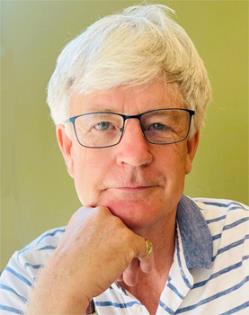
Catalyst ICT4D Collective. He is a British academic and public figure, specialising in the uses of digital technology by the world’s poorest and most marginalised peoples. Trained as a geographer, he believes in crossing boundaries between disciplines and sectors, as well as in the importance of international understanding between peoples and governments
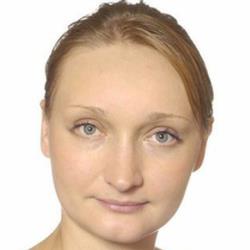
Yuliya leads non-profit organisation TaC-Together against Cybercrime International, which works on the empowerment of users on safe and responsible Internet, child online protection and the Internet Governance issues. TaC International proposes victim assistance, works on educational tools for professionals (such as law enforcement or judges) and corporate users, as well as develop awareness raising activities mainly through its Youth IGF project.
Yuliya is an expert belonging to a number of international organisations on ICT markets and cybercrime/cybersecurity and author or co-author of a number of regulatory texts in different countries. She regularly advises governments and private sector entities on cybersecurity strategies.
Yuliya has co-initiated such projects as: Youth IGF Movement (2011), EU Observatory on better participation of vulnerable groups in the Information Society (2016) or the Empowerment of vulnerable children online (2013).
She recently initiated a development of awareness-raising tools for users on cybersecurity, together with the University of Beira Interior (Portugal).
Yuliya is an appointed #SaferInternet4EU Ambassador by the EU Commissioner for Digital Economy and Society and former MAG member to the UN SG on the IGF - Internet Governance Forum (three terms).
She is a graduate from the Institute of Political Sciences of Paris and also holds a Master degree in European Affairs and the L.L.M. in Internet Law.
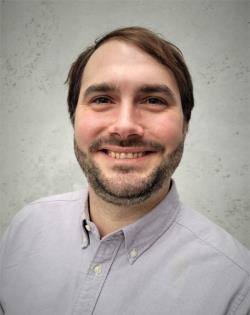
Paul has been the chairman of ICT4D.at since 2014 and in his spare time enjoys using his skills for the common good. He graduated as a computer scientist with a focus on media informatics from the Vienna University of Technology, where he is currently also doing his PhD. He works with INSO (the Research Group for Industrial Software) as a researcher and lecturer in the field of mobile technologies and ICT4D. He is currently employed as a software developer for mobile technologies within a fast growing Austrian company. He has won several national and international awards for his innovative work at Os – a collective to tackle social issues through the use of ICTs
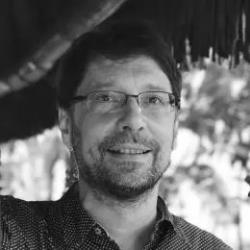
Serge Stinckwich is a computer scientist and the Head of Research at the United Nations University Institute in Macau.
Before joining UNU, he was an Associate Professor at the University of Caen Normandie (France) and a researcher in the UMMISCO international joint research unit of IRD (French Research Institute on Sustainable Development) Sorbonne University.
Over the years, Serge developed an innovative research program about modelling and simulation of complex systems at the intersection of several scientific disciplines applied to developing countries’ issues. His research interests are domain-specific languages and tools that ease the tasks of non-computer experts to model, simulate and analyse complex systems. He has applied his work to Epidemiology, Environmental Monitoring and Disaster Management.
From 2008 to 2012, he worked in Hanoi, Vietnam, on the AROUND (Autonomous Robots for Observation of Urban Networks) programme, which deals with deploying simple mobile autonomous sensors during disasters in the context of southern countries. He has also been an invited Professor at Kyoto University to work with Japanese experts on Rescue Robotics.
In 2017, he was based in Cameroon. With colleagues from the University of Yaoundé, he worked on Complex System modelling and Artificial Intelligence applied to applications like epidemiological surveillance and environmental monitoring in collaboration with IRD and CIRAD research institutes.
From 2018 to 2018, Serge was the Principal Investigator of GDRI Sense-South, an international research network of teams from Senegal, Cameroon, Vietnam and France working on “Innovative Sensors and IoT Telecommunication Networks for Environmental Surveillance in Southern Countries”. Sense-south funds actions like the “Smart Clean Garden” project to control the water purification in soils and the sustainable city project of Douala (Cameroon) with a local climate change observatory.
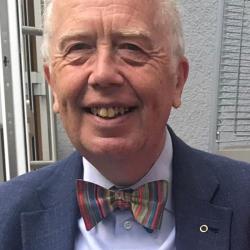
James is a former Governing Body Fellow of Wolfson College, having previously been a Research Fellow and a Guy Newton Stipendiary Junior Research Fellow. He has been the Wine Steward at Wolfson and was Chair of the Social and Cultural Committee for four years. An Emeritus Professor, he was formerly Professor of Protein Biochemistry and Head of School at the University of Reading, and Executive Dean of Creative Arts, Technologies & Science and Professor of Biochemistry at the University of Bedfordshire. He is currently a Consultant on Red Listing to the International Union for the Conservation of Nature (IUCN), ‘100 Talents’ Special Visiting Professor at Shanxi University, Honorary Professor at both Changchun University of Science & Technology and at Wuhan Business University, China. In 2021 he was elected a Distinguished Fellow of the Institute of Data Science and Artificial Intelligence, and Co-Founder of the US National Academy of Technology. [Presentation will be by short video]
-
 C1. The role of governments and all stakeholders in the promotion of ICTs for development
C1. The role of governments and all stakeholders in the promotion of ICTs for development
-
 C7. ICT applications: benefits in all aspects of life — E-environment
C7. ICT applications: benefits in all aspects of life — E-environment
-
 C10. Ethical dimensions of the Information Society
C10. Ethical dimensions of the Information Society
-
 C11. International and regional cooperation
C11. International and regional cooperation
-
 Goal 7: Ensure access to affordable, reliable, sustainable and modern energy for all
Goal 7: Ensure access to affordable, reliable, sustainable and modern energy for all
-
 Goal 9: Build resilient infrastructure, promote sustainable industrialization and foster innovation
Goal 9: Build resilient infrastructure, promote sustainable industrialization and foster innovation
-
 Goal 12: Ensure sustainable consumption and production patterns
Goal 12: Ensure sustainable consumption and production patterns
-
 Goal 14: Conserve and sustainably use the oceans, seas and marine resources
Goal 14: Conserve and sustainably use the oceans, seas and marine resources
-
 Goal 17: Revitalize the global partnership for sustainable development
Goal 17: Revitalize the global partnership for sustainable development